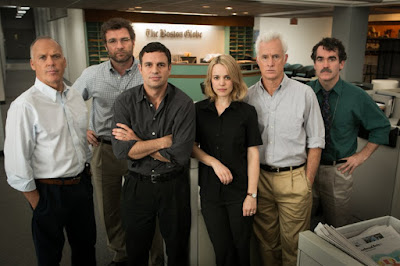What absolute, unencumbered, hoot-and-a-half fun is NUTS!, the new documentary directed by Penny Lane (of Our Nixon fame) and very cleverly written by Thom Stylinski. Combining with flair, humor and -- eventually -- not a little sadness, the film uses charming, stylish animation along with grand archival footage and a smart narration that probes America's past and still current (hence the headline reference to Donald Trump) inclination to make wealthy heroes out of lying trash.
The antagonist of Nuts! is one, John Romulus Brinkley, little known today but in his time -- the early 1900s -- one of the most famous men in these whole United States. But famous for what? For curing impotence by transplanting goat testicles into (or maybe onto: his methods, as you will see, are a tad unclear) the human male. Ms Lane, shown at right, tells the tale of this man (of whom TrustMovies and I wager most of his readers had never before heard) with such cleverness and gusto that she yanks us into the crazy story full on.
Brinkley, shown above (in animated form) and below in an old (and I suspect colorized) photo, was a practicing doctor in a small Kansas town who made his discovery in 1917, went on to become one of the country's major celebrities and wealthiest citizens, transplanted thousands of those goat testicles, ran for governor of Kansas (could he have been any worse than Kansas' current cretin, Sam Brownback?), introduced to Americans everything from the infomercial to junk mail, and created the world's most powerful radio station (broadcasting out of Mexico yet -- to circumvent laws that America's medical and broadcasting establishments had created to put him out of business). This guy was something else!
Something else indeed. Ms Lane's great notion here is to base much of her documentary on Brinkley's story, as told by the biography of the man written at the time of his rise. It's a whopper, in so many ways, but also a terrific tale. So we are put in the place of those adulatory fans who no doubt bought that book and drunk in every word. Sort of like Mr. Trump's followers have done with "the Donald's" own books, TV shows and ridiculous rhetoric from the podium.
During this delightful and rather short doc -- it lasts but 79 minutes -- we also meet Brinkey's bête noire, an American Medical Association-sanctioned fellow named Morris Fishbein (above, right), who dogs the good doctor's trail over years. My current gut feeling about the AMA and its sometimes abusive powers put me in mind to dislike Mr. Fishbein, but Ms Lane wisely allows a scenario to eventually emerge that is quite a bit different from that of the Brinkley "biography."
What we learn from all this is not just vastly entertaining but also salutary. It's always good to be reminded how easily charlatans can become powerful and how quickly a large portion of the general populace can be made to follow them. From the doctor's supposed first "goat gland" patient (above) to the woman he marries (well, one of them) and the son he fathers and helps raise (below), we move through a life that seems devoted to success and achievement but is actually all about something quite other. The manner in which Lane shows us (in animation) what happened to that son, juxtaposed against a recorded message from his father, is beautifully and artfully handled.
Nuts! brings to life and art so much of what passess, then and now, as the sort of American Dream that eventually turns into the American nightmare -- from which, thanks to the efforts of Mr. Fishbein, the USA managed to awake. But who will help us today, given the way in which corporate power and the media have embraced our latest example of egotism, narcissism and fraud? Maybe Ms Lane, even as I type, is preparing a look at this present-day subject. After all, she 's already covered I-am-not-a-crook Richard Nixon and I-cure-impotence-using-goat-glands Dr. Brinkley. Why not Mr. I-make-the-best-steaks-education-casinos-and-walls?
To get a rich and full look at the damage Mr. Trump can bring to a country, its citizens and environment via one of his "projects," try to view the sad and wonderful little documentary You've Been Trumped, but meanwhile, do see this exhilarating new doc, Nuts!, from Ms Lane and released via Cartuna. The movie opens tomorrow in its U.S. theatrical premiere at Film Forum in New York City for a two-week run. Elsewhere? Definitely. The following week, you can see it in -- yes! -- Kansas City, Missouri. Then look for it to screen all across the country in the weeks and months to come. Click here and scroll down to view all currently scheduled playdates, cities and theaters. (Even Kansas itself -- one city, at least -- is going to get a look at this smart new film.)
























.jpg)
.jpg)











